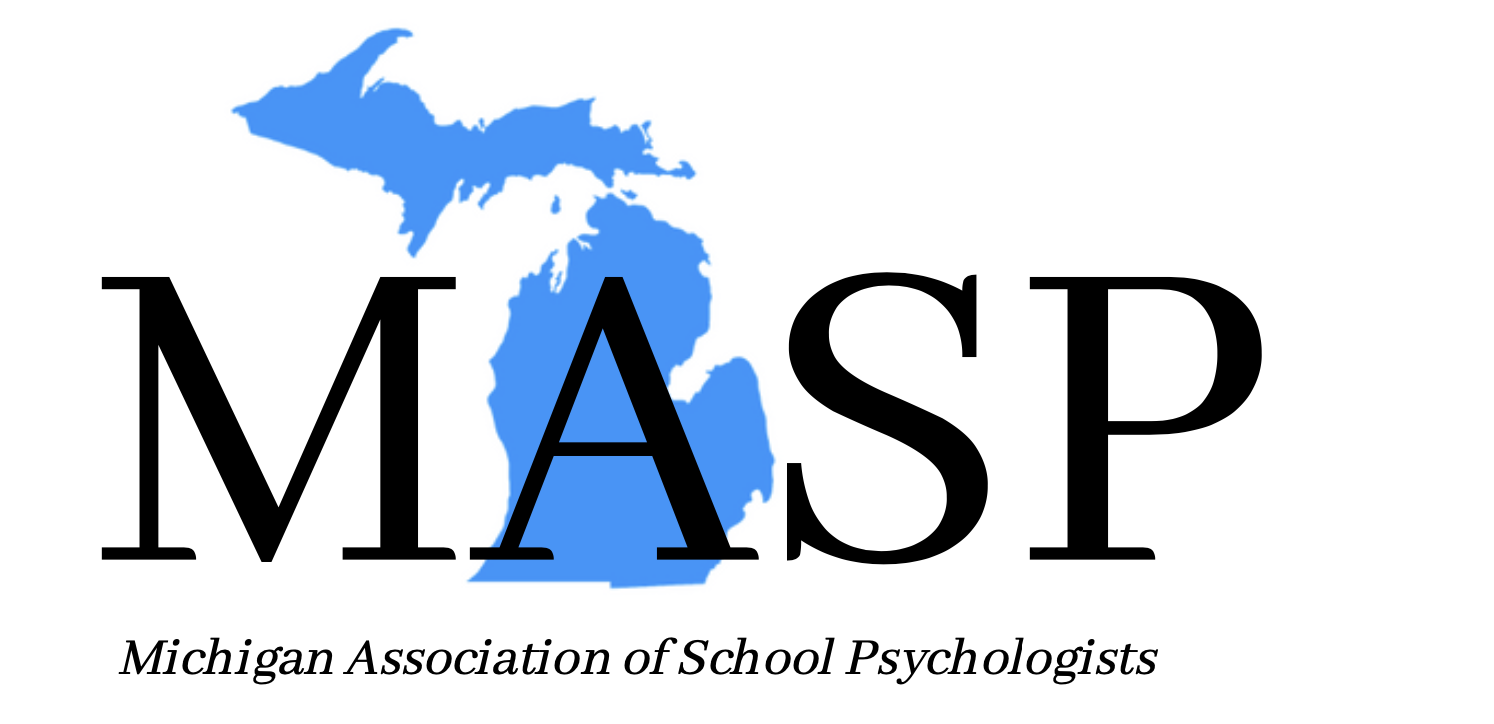Unable to attend the live broadcast? Register to watch the recording and still earn SCECHs. Participants need to watch the recording and complete the google survey by 05/01/22 to earn SCECHs. A zoom link to the recording will be sent to you with your event registration.
Previously Recorded: Best Practices for School Psychologists in
Meeting the Needs of LGBTQ+ Youth
Free for members and only $10 for non-members
2.0 SCECHs will be offered.
The climate of acceptance for LGBTQ+ individuals is slowly improving in Michigan and across the country but many schools remain unsafe for lesbian, gay, bisexual, transgender, and questioning (LGBTQ+) youth. Educators have much work to do to make schools safe and affirming for all students, including LGBTQ+ youth. In particular, school psychologists are charged with upholding professional ethics and best practices to protect the dignity and rights of LGBTQ+ youth and ensure an equal educational opportunity. MASP and NASP (National Association of School Psychologists) have long-standing commitments to advocacy efforts aimed at ensuring that schools are safe and inclusive learning environments for all students. Students who are LGBTQ+ are among schools’ most vulnerable youth, experiencing bullying and harassment at disproportionately high levels (Kosciw, Greytak, Palmer, & Boesen, 2014). The victimization that occurs at school puts LGBTQ+ students at risk for negative mental health outcomes and reduced academic success. School psychologists play an important role in turning around these negative trajectories by helping to foster a school climate that promotes acceptance of diversity and a positive learning environment for the total student population. Relevant resources will be identified and shared to assist school psychologists with the implementation of strategies to ensure a safe and supportive school environment for LGBTQ+ youth.
Learning Objectives:
(1) This session will help participants to identify risk factors facing LGBTQ+ youth and how these impact mental health and school performance.
(2) This session will empower participants to develop and utilize skills resources to address inclusivity, supportive practices, and the mental health needs of LGBTQ+ youth.
(3) This session will help participants utilize the Michigan State Board of Education's Statement and Guidance on Safe and Supportive Learning Environments for Lesbian, Gay, Bisexual, Transgender, and Questioning (LGBTQ) Students to promote best practices in meeting the needs of LGBTQ+ students.
Presenter/facilitator Bios:
- · Tracy Hobbs, NCSP:Tracy has been a school psychologist for 41 years and is currently serves as MASP's Membership Chair; he also serves on the NASP Board of Directors as the Strategic Liaison for Professional Development. Tracy is a trainer and educational consultant for the Michigan Department of Education’s LGBTQ+ Student Project, a member of NEA’s National Training Program on Safety, Bias, and GLBT Issues, and a nationally certified trainer for the Welcoming Schools program. For five years, Tracy was the faculty advisor for his high school’s GSA.
- · Michele Millhouse: Michele has worked as a school psychologist for seventeen years in the urban, suburban, and rural setting across all grade levels in two states (Michigan and Pennsylvania). Michele earned an Ed.S. from Lehigh University and a B.S. in Special Education from Kent State University. In addition to her work as a school psychologist, Michele has served as the MASP School Psychologist Shortage Committee Chair and has held the position of Region 13 Directors for the past two years. Michele has participated in committees through the Michigan Department of Education related to supporting parents of children with special needs, diversity/equity in education, and mental health services during COVID-19. Further, Michele participated in the creation of the Michigan Department of Education Return to School Mental Health Toolkit to support educators, students, and parents during COVID-19. She also has served as a member of the School Based Mental Health Committee. This organization consists of board members from the Michigan School Counselor Association, the Michigan Association of School Psychologists, and the Michigan Association of School Social Workers. As a board member of MASP Michele has assisted lawmakers in Michigan in legislation related to suicide prevention, threat assessment and the provision/expansion of mental health support in our state.
- · Sarah Kiperman, PhD, LP, NCSP, Registered Play Therapist: Sarah is a school psychology assistant professor at Wayne State University’s College of Education and a behavioral consultant through Beaumont Health Group’s Human Development Center. She serves as the early career chair for the NASP LGBTQIA2 Committee, is the Director of the Project Support research team, and is a research affiliate of the Center for Research on School Safety, School Climate, and Classroom Management as well as the Center for Health and Community Impact.

